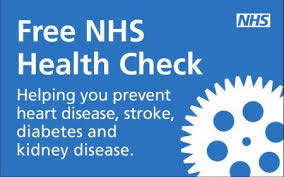
 04th Dec 2017
04th Dec 2017
 Protection
Protection
 By Ashley Shepherd
By Ashley Shepherd
Although we may take it for granted, the state of our health is of the utmost importance and can have a serious impact on the way we live our lives. As we get older, the risks to our health become more apparent, so the need to get and stay fit increases.
The exercise we take, the food we eat and our general lifestyle are all critical when it comes to health care but so is taking an active role in preventative measures, which is where the NHS Health Check comes in.
What is the NHS Health Check?
NHS online services provide a wealth of useful information on health. What used to be the NHS symptom checker, now replaced by the NHS Health A-Z for information on conditions has to be one of the most frequently visited areas of the NHS online service, however that is just a small part of the information on offer.
The NHS Health Check is a health screening service that is free for adults aged 40 to 74, in place to check and detect the risk of disease before it can cause real damage. It can tell you whether you are at risk of developing certain health problems such as heart disease, diabetes, Kidney disease or a stroke and give you advice on how to prevent them.
If you are registered with a GP and do not have a history of heart disease, stroke, diabetes, kidney disease or high blood pressure, you should automatically be invited to a free NHS Heath Check every 5 years. If the health check is at a different location, your local health authority will write confirming where you should go.
If you are within the age range and haven’t had an NHS Health Check within the last 5 years, speak to your local NHS GP and they will arrange it for you.
The value of an NHS Health Check
We all lead busy lives which is why frequently our health can take a bit of a back seat. After all it can be much quicker to grab that sugar and fat loaded snack when you are in a rush than plan a healthy meal or easier to ignore that niggling reoccurring pain when you have so much to do; however the results of the NHS Health Check to date speak for themselves.
Within the first 5 years of service, the NHS Health Check is reported to have prevented 2,500 stokes or heart attacks with more recent research suggesting that:
- One person in 27 who have the NHS Health Check are diagnosed with high blood pressure
- One person in every 110 who have the NHS Health Check are diagnosed with type 2 diabetes
- One person in 265 who have the NHS Health Check are diagnosed with kidney disease
But don’t forget, it’s not just about diagnosis. This health screening process is about understanding your risk of having a heart attack or stroke, or developing type 1 or 2 diabetes so you can put measures in place to prevent it from happening.
What happens on the NHS Health Check?
Your NHS Health Check is usually carried out by a nurse but it could be by an NHS GP, pharmacist or health care assistant.
You will first be asked a number of questions about your family’s medical history, what your diet is like, whether you exercise and also if and how much you drink or smoke.
You will then be weighed to find out your Body Mass Index (BMI) – this will help the nurse or doctor understand your risk for developing heart disease, type 2 diabetes, a stroke or certain types of cancer. They may measure your waist too.
They will then monitor your blood pressure and take a small prick of blood from your finger to check your cholesterol and your blood sugar levels.
You will usually be given the results of your NHS Health Check on the day, although you may have to wait a little longer for any blood test results. Based on the medical information collected, your age, gender and ethnicity, you will be given a risk score which will indicate how likely you are to develop one or more of the illnesses in question.
Your NHS Health Check action plan
Depending on your health screening results you may then be given advice as to how to improve your lifestyle and in doing so help reduce the risk.
The results will be broken down into the following categories so the nurse or doctor will be able to guide you on what aspects of your lifestyle you need to improve on:
- Body mass index (BMI)
- Blood pressure
- Cholesterol level
- Volume of alcohol
- Physical activity
- Diabetes risk assessment
In addition they can also calculate the true age of your heart with their ‘Lifetime Risk Calculator’ and people over 65 will be advised on the signs and symptoms of dementia.
So if you are 40 to 74 and not had your free NHS Health Check yet, contact your local GP and get it arranged as it could just lead to a happier and healthier future.
You may wish to consider private health insurance
If might be more affordable than you think?